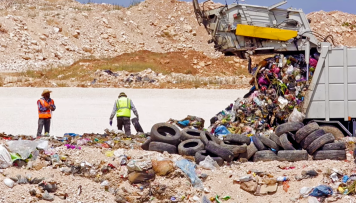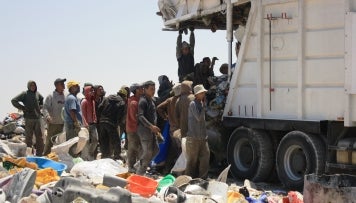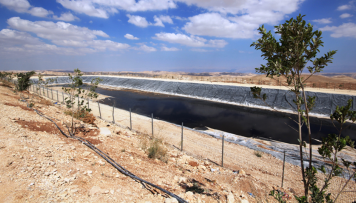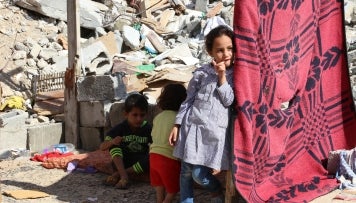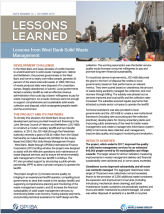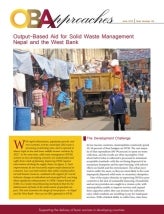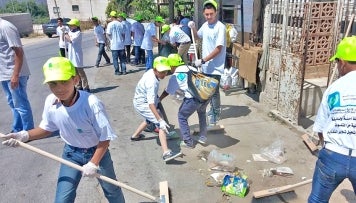
Ramallah, September 2, 2013 – The World Bank, as administrator for the Global Partnership on Output-Based Aid (GPOBA), announced the signing of an US$8.3 million grant agreement for a project to improve access to solid waste management services in the West Bank. The World Bank will support the Palestinian Authority by providing funding for this project, which will benefit approximately 840,000 residents in the Hebron and Bethlehem governorates by allowing access to better quality and more affordable waste collection. “Unsanitary waste collection and disposal is a serious issue in Hebron and Bethlehem, particularly for the poor living close to unregulated dumpsites at the edge of towns and villages. The grant will improve the quality and the efficiency of the solid waste management system and consequently will help protect the environment and health of citizens,” said Mariam Sherman, World Bank Country Director for the West Bank and Gaza. The service providers – which include the Municipalities and Village Councils, the Joint Services Councils for Planning and Development, and the Joint Services Council of Hebron and Bethlehem (JSC-H&B) – will receive subsidies to improve the services of collection and management of solid waste, as well as promote the financial sustainability of the solid waste management system.
“This project is one of the first in this sector to use an output-based aid (OBA) approach; the OBA subsidy, which will serve as an incentive to the service providers, will be disbursed once they meet performance targets. The grant will provide much needed support to the local authorities and will foster sustainable solid waste management services,” said Carmen Nonay, Manager, GPOBA.
Hebron and Bethlehem are the poorest governorates in the West Bank and generate 20 percent of the area’s total solid waste. While primary service collection is carried out, the fiscal and institutional constraints significantly affect the quality and the sustainability of the system. The project aims to improve the quality and cost-recovery of waste management, including sanitary disposal and treatment.
“The performance mechanism provides incentives to achieve efficient collection, transportation, proper use of disposal facilities, and appropriate planning and monitoring through a modern integrated Management Information System for affordable and safe management of waste, including dangerous waste. The performance scorecard system will systemically track progress and will help our member municipalities to learn from one another, and possibly others in the region,” said Dr. Daoud Zaatari, Mayor of Hebron, Chairman, Joint Services Council for Hebron and Bethlehem.
The OBA approach provides well-designed incentives to increase service quality which in turn will affect customer willingness to pay and gradually recover costs borne by the service providers. The OBA subsidy will phase out after four years of the newly constructed landfill’s operations at Al Minya, when user revenues will sufficiently cover the increased costs of adequate service delivery. The OBA pilot is part of the larger Southern West Bank Solid Waste Management Project, supported by the World Bank, the European Union and other donors, following the successful implementation of a similar project in the Northern West Bank. The International Finance Corporation (IFC) is supporting JSC-H&B through a public-private partnership to manage the new sanitary landfill and related facilities. IFC is also providing technical support to JSC-H&B to assist with the start-up and implementation of both the World Bank and GPOBA-funded projects.
